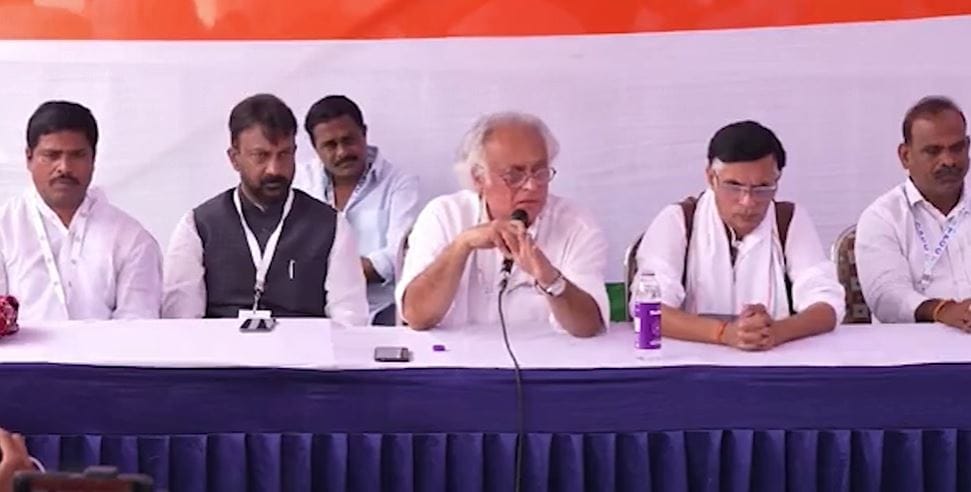The Startling Resignation of Manoj Soni
In a surprising turn of events, Union Public Service Commission (UPSC) chairperson Manoj Soni resigned from his post five years before the end of his tenure, citing personal reasons. His resignation, which occurred a month ago, has ignited a firestorm of speculation and criticism from opposition parties. The Congress, in particular, has alleged that Soni was “nudged out” due to the ongoing controversy involving the Commission.
The Trigger: A Scandal Unveiled
The resignation of Soni coincides with a significant scandal involving trainee IAS officer Puja Khedkar. Khedkar, who was inducted into the civil services based on forged identity papers and disability certificates, has been the center of controversy. The UPSC lodged a criminal case against her on July 19, and this incident has brought to light multiple instances of candidates misusing caste, disability, and Economically Weaker Section (EWS) criteria to gain reservation benefits and secure positions through the Civil Services Examinations (CSE). This scandal has prompted widespread outrage and demands for accountability from various quarters.
Political Reactions and Allegations
Opposition leaders have been vocal in their criticism of the government’s handling of the situation. Congress president Mallikarjun Kharge accused the BJP and RSS of systematically undermining India’s constitutional bodies, thereby damaging their reputation, integrity, and autonomy. Kharge highlighted the multiple scandals plaguing the UPSC as a national concern and demanded transparency from Prime Minister Narendra Modi and his Minister of Personnel, Public Grievances, and Pensions.
In a post on X, Kharge expressed dismay over the premature resignation of the UPSC chairperson, questioning the secrecy surrounding it and the potential connection between the scandals and the resignation. He pointed out that Soni, a favored academic brought in from Gujarat, had been promoted to the chairperson’s position in 2023 with a six-year term, only to resign abruptly five years before its expiry.
Calls for Accountability and Transparency
Samajwadi Party (SP) president Akhilesh Yadav echoed similar sentiments, emphasizing that resignation alone was not a solution. Yadav called for accountability and strict action against those responsible for the corruption within the Commission. He criticized the BJP for allegedly corroding the civil services, famously known as the steel frame of India.
Congress general secretary Priyanka Gandhi Vadra emphasized the importance of the professional system of UPSC in maintaining the trust of millions of people and ensuring effective governance and administration. She demanded answers from the government regarding the political appointments to top UPSC posts and the subsequent scandals.
Congress general secretary Jairam Ramesh further accused Prime Minister Modi of appointing one of his favorite academics from Gujarat to the UPSC, who has now resigned amidst controversy. Ramesh suggested that Soni’s resignation was not voluntary but rather a result of the ongoing scandal.
Broader Implications and Future Actions
The resignation of Soni and the accompanying scandal have raised significant concerns about the integrity of the UPSC and its selection processes. Amitabh Kant, former NITI Ayog chief, and Sherpa for G20, highlighted the need for thorough investigations and stringent actions against fraudulent activities within the UPSC. Kant also called for a review of the existing reservation policies, particularly for the physically and mentally handicapped and the proposed reservation for the third gender, to prevent misuse.
The controversy surrounding the UPSC and its chairperson’s resignation underscores the need for transparency, accountability, and reforms to restore public trust in one of India’s most esteemed institutions. As the government and opposition parties continue to grapple with these issues, the broader implications for India’s civil services and governance remain a topic of intense debate and scrutiny.
Key Learning Points
| Key Learning Points |
|---|
| The resignation of UPSC chairperson Manoj Soni has sparked controversy and allegations from opposition parties. |
| Soni’s resignation is linked to a scandal involving forged identity papers and disability certificates by trainee IAS officer Puja Khedkar. |
| Opposition leaders accuse the BJP and RSS of undermining India’s constitutional bodies and demand transparency from the government. |
| Calls for accountability and stringent actions against those responsible for corruption within the UPSC are growing. |
| The controversy highlights the need for reforms and reviews of existing reservation policies to prevent misuse. |
Summary
The unexpected resignation of UPSC chairperson Manoj Soni has ignited a political storm, with opposition parties alleging government interference and calling for accountability amidst a scandal involving forged identity papers and disability certificates. The situation underscores the need for transparency and reforms to restore public trust in India’s civil services.
Soumya Smruti Sahoo is a seasoned journalist with extensive experience in both international and Indian news writing. With a sharp analytical mind and a dedication to uncovering the truth, Soumya has built a reputation for delivering in-depth, well-researched articles that provide readers with a clear understanding of complex global and domestic issues. Her work reflects a deep commitment to journalistic integrity, making her a trusted source for accurate and insightful news coverage.



